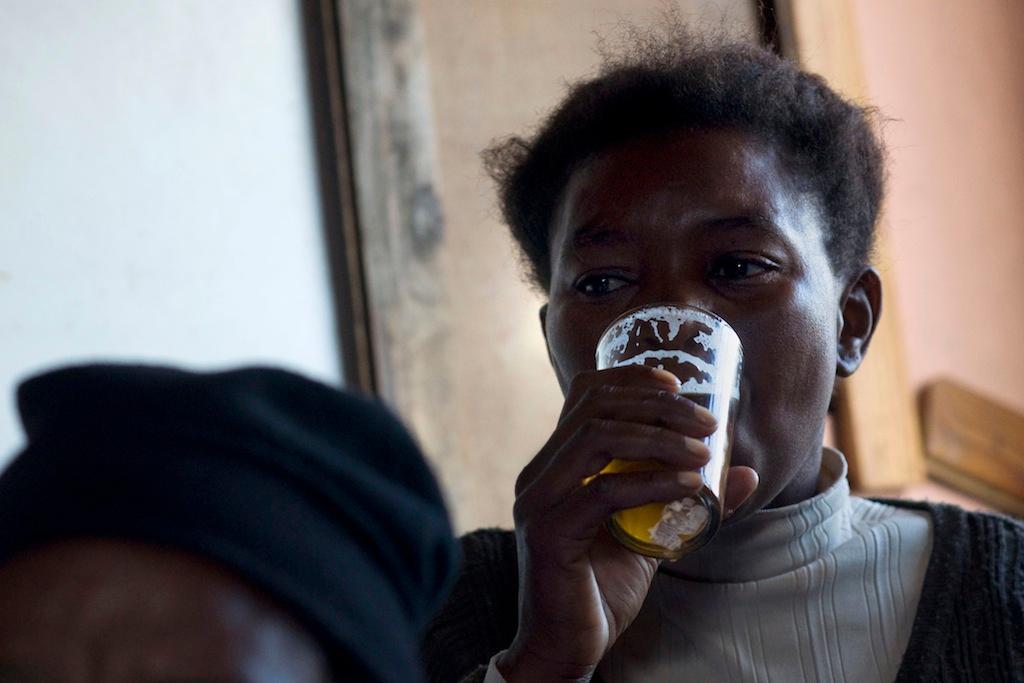Beer and Africa: A recipe for profit?
A woman drinks a beer in a ‘shebeen’, an illegal tavern, usually in someone’s home, in Gugulethu, on Feb. 10, 2012, about 15Km from the centre of Cape Town, South Africa.
Africa maybe the world's poorest and most undeveloped continent, but its abundance of natural resources and a surging population makes it an attractive prospect for investors.
One sector that is yet to be truly tapped is the brewing industry, according to research firm Bernstein Research, which believes Africa is probably the most attractive region for long-term profit growth for global brewers.
Spirit and beer maker Diageo agrees, telling CNBC.com that they are "long term investors" in Africa. Despite a long list of challenges, the continent offers tremendous opportunities to work with local governments and grow local communities, the firm says.
Logistics, a lack of infrastructure, water and energy and a limited skilled workforce are just some of the hurdles Diageo highlights. Additionally, illicit consumption of home-brewed alcohol is prevalent in Africa. Diageo's own research suggests that around 50 percent of consumption in Kenya is either informal (not recorded) or unlisted (i.e. illicit).
Despite this, the continent's huge population, over 1 billion according to the United Nations, with a 26 percent increase over the last decade, means Africa (along with emerging Asia) offers the highest long-term upside to investment in beer consumption, Bernstein Research said.
"African [profit] margins have more headroom and better (very) long-term growth prospects," it said in a research note.
"We note countries such as Nigeria, DRC (Democratic Republic of the Congo) and Ethiopia have very large populations and low per capita consumption. Therefore, we believe there is little doubt that Africa will be one of the engines of growth for the beer category in the next decades."
But it may not be good news for all brewers waiting to venture into the emerging market. Bernstein says incumbents are likely to benefit from any potential upside as operational challenges make it very difficult for new entrants.
And according to Bernstein's data those incumbents are SABMiller, which controls 38 percent of regional Beer EBIT (earnings before interest and taxes) on an equity-adjusted basis, Castel (25 percent), Heineken (18 percent) and Diageo.
"As the region is likely to continue to grow fast, so will its relative importance to those brewers' earnings," it said.
SABMiller announced a $40 million investment this month in a new brewery in Namibia as part of its strategy to expand its operations across Africa. Eight days later the company announced the launch of a new beer called Eagle in Ghana, made from the cassava plant, to complement its Impala beer, unveiled in Mozambique 18 months ago.
"Part of our strategy across Africa is to make high quality beer which is affordable for low-income consumers while simultaneously creating opportunities for smallholder farmers in our markets. The launch of Eagle in Ghana ticks both these boxes," Mark Bowman, managing director of SABMiller Africa, said in the press release.
Diageo has also made big announcements. Ghana's first cassava beer, Ruut Extra Premium Beer, was announced at the start of the year and a Diageo spokesperson James Crampton told CNBC.com that the firm likes to "innovate" in the affordable sector.
"We have a brand for every motivation or occasion," Crampton said, and detailed that policy making in the region has also led to taxes being waived by governments who are keen for brewers to work with local farmers and communities.
More from our partners, CNBC:
CNBC: Payroll tax hike doomsday: stocks, real estate buffer impact
CNBC: Japan needs neighbor's love, not cheap money
CNBC: Energy boom ripples through US economy
We want to hear your feedback so we can keep improving our website, theworld.org. Please fill out this quick survey and let us know your thoughts (your answers will be anonymous). Thanks for your time!
